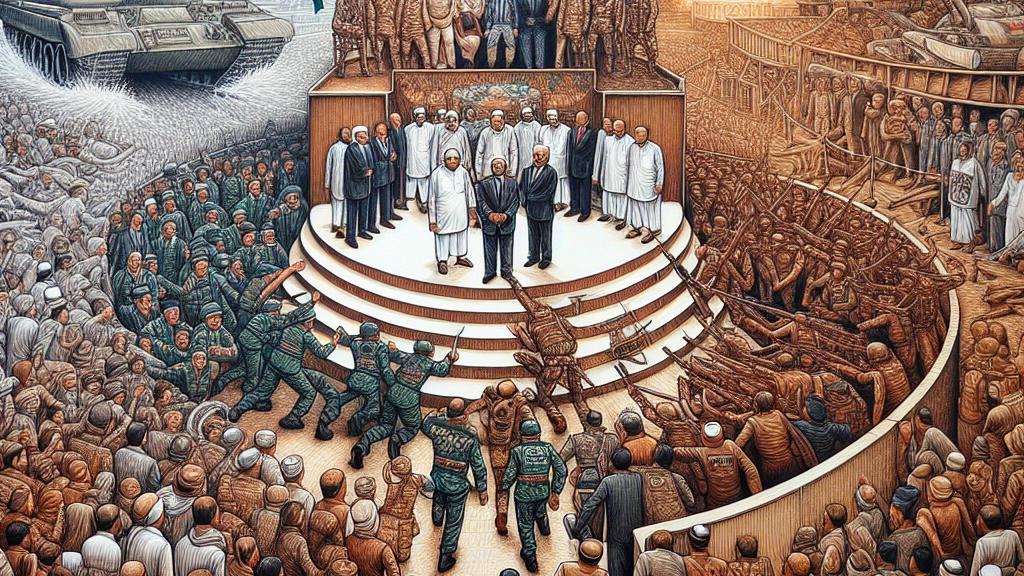When Alliances Shift: BNP Declares Independence from Awami League in Indo-Bangla Relations
Overview
- The Bangladesh National Party (BNP) asserts that India-Bangladesh relations should transcend the Awami League's influence.
- BNP leaders express optimism for redefining Indo-Bangla ties following Sheikh Hasina's departure.
- India's strategic engagement now requires adaptation to the evolving political landscape in Bangladesh.

Critical Shifts in Bangladeshi Politics
The political landscape in Bangladesh has undergone a seismic shift following Prime Minister Sheikh Hasina's resignation and drastic escape to India in the wake of intense protests against her administration. This situation has emboldened the Bangladesh National Party (BNP), presenting it with a unique chance to redefine the narrative of Indo-Bangla relations. BNP leaders, such as Khandaker Mosharraf Hossain, articulate that the future of bilateral ties should hinge on mutual respect and shared interests, distancing away from a singular political identity. They maintain that Bangladeshis view India not through the lens of political parties but rather as a vital ally, reflecting a deep-rooted friendship and cultural affinity that has persisted through various regimes.
BNP's Aspirations for Enhanced Bilateral Relations
In their pursuit of improved relations with India, BNP leaders are advocating for a partnership that prioritizes democratic principles and the needs of the Bangladeshi populace. They have positively reacted to Indian Prime Minister Narendra Modi's congratulatory remarks to the new interim government led by Nobel laureate Muhammad Yunus, suggesting that this is an opening for India to adopt a more balanced approach. The BNP emphasizes the need for India to engage constructively with the Bangladeshi people rather than supporting potentially authoritarian regimes. By fostering a relationship grounded in democracy and development rather than political favoritism, the BNP believes India can play a crucial role in Bangladesh’s stable future, enhancing regional cooperation on multiple fronts including security, trade, and cultural exchanges.
Strategic Dimensions of Indo-Bangla Relations Moving Forward
India's strategic positioning in Southeast Asia necessitates a careful re-evaluation of its relationship with Bangladesh as political dynamics shift. With the BNP gaining traction and urging India to move away from its historical ties with the Awami League, Indian policymakers face a pivotal moment. They must recognize that an overly close alignment with any one Bangladeshi faction could foster resentment among the general populace. The task ahead involves balancing immediate security concerns, such as the control of extremist movements, with long-term investments in democracy and economic cooperation. By enhancing infrastructure, trade, and cultural partnerships while respecting Bangladesh's sovereignty and democratization efforts, India can cultivate a robust relationship that mutually benefits both nations.

Loading...